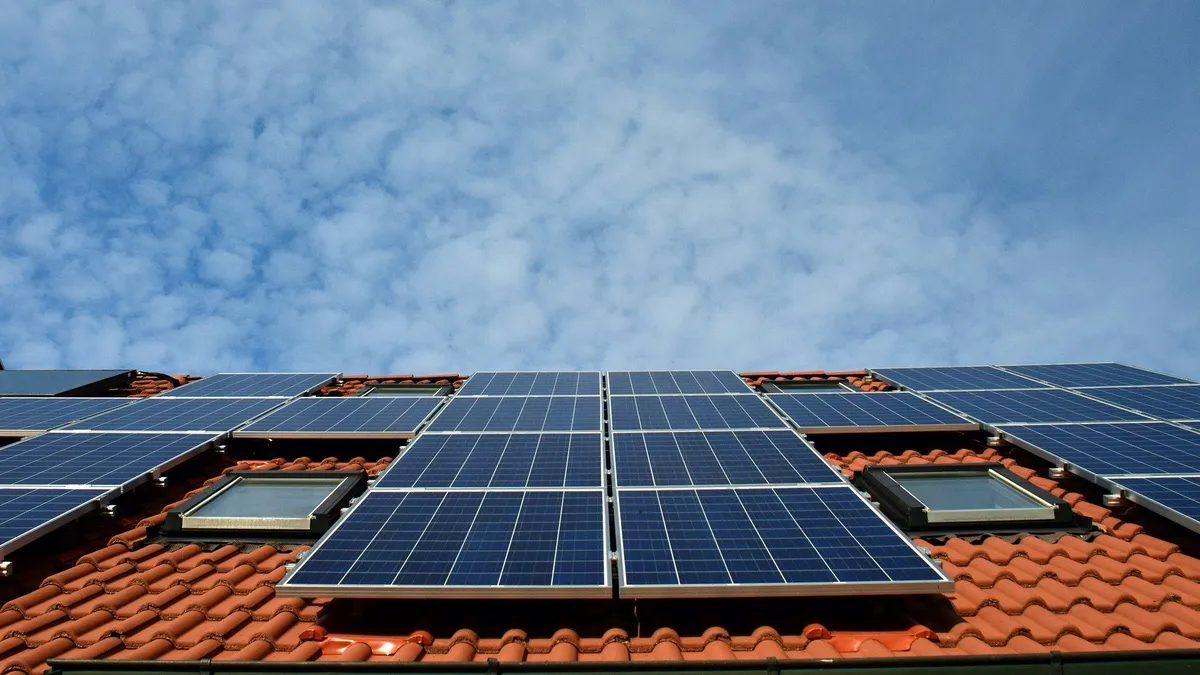Dive Brief:
- Detroit-based DTE Energy has filed a new Integrated Resource Plan (IRP) as the first step to comply with a demand by Michigan regulators that the company take another look at customer energy efficiency programs as well as the cost of building more solar and wind to move away from coal and gas power plants.
- The Michigan Public Service Commission in February ordered the company to develop a new IRP to be based on competitive bids for a specific plan to expand renewable generation. The company's previous IRP laid out four renewable energy scenarios with price tags that renewable energy advocates argued were above market costs and designed to buttress the company's position to keep its old coal plants and add more gas turbine plants.
- DTE has until April 1 to file a new renewable energy plan that will include a competitive bidding process that some company critics hope will reflect the declining costs of wind and solar projects — and therefore weaken the company's arguments that coal and natural gas are competitive.
Dive Insight:
As demanded by the Public Service Commission, the new IRP eliminates the four possible renewable energy scenarios contained in the previous plan, includes only state-approved renewable projects as a modeling starting point and assumes "waste reduction" (as a result of customer energy efficiency) of 1.75% this year and 2% in 2021 as the starting point for future reductions.
DTE's new integrated resource plan, which appears still to model the company's generation capacity needs out to 2034, is a victory for the public, said John Delurey, Midwest director of Vote Solar.
"DTE's initial IRP was a 'pick your own adventure' for their energy future by outlining four possible paths forward," he said. "The MPSC pushed back and required DTE to commit to a single plan. That plan … does represent a handful of victories for the more than 8,000 people who submitted public comments on the plan, including an increase of energy efficiency spending and a step away from their intention to build an additional fracked gas plant," he said.
Charlotte Jameson, the Michigan Environmental Council's program director for legislative affairs, called DTE's new integrated resource plan a good start.
"The revised plan … includes many of the significant changes the Commission requested and therefore is a step in the right direction."
"DTE's original IRP was full of flaws that biased the company away from affordable renewable energy, maximizing energy efficiency, and retiring expensive coal plants in a timely manner," she said. "We must look to DTE's upcoming renewable energy plan and the next IRP they file in 2023 as the real opportunities to ensure the utility gets it right."
DTE, which reported net earnings of $1.2 billion last year, has told investors the company is on "a steady march to clean, reliable, affordable home-grown energy." The company is projecting that by 2030 its renewable generation will represent 25% to 30% of its total generation, gas 20% to 25%, nuclear remaining at 20% and coal will have fallen to just 30%.














